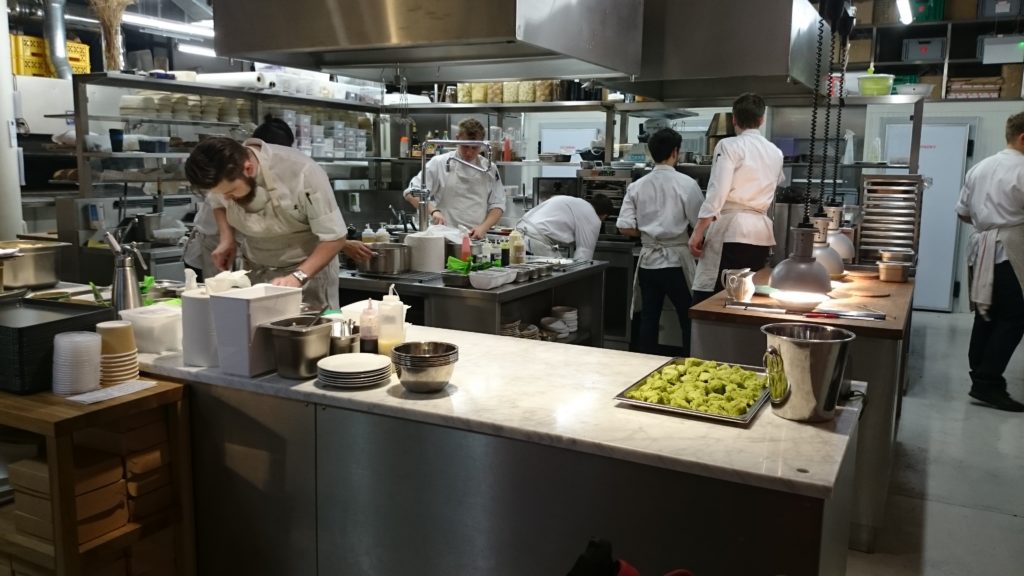 If you have any type of commercial kitchen, then you need restaurant kitchen exhaust hood cleaning services. In fact, it’s not simply a service that restaurants need. Churches, schools, hospitals and any facility cooking food on their property requires proper cleaning to meet Triangle area safety regulations. Fortunately, Steel Mountain Fire & Safety is a local company, ready to meet your needs.
If you have any type of commercial kitchen, then you need restaurant kitchen exhaust hood cleaning services. In fact, it’s not simply a service that restaurants need. Churches, schools, hospitals and any facility cooking food on their property requires proper cleaning to meet Triangle area safety regulations. Fortunately, Steel Mountain Fire & Safety is a local company, ready to meet your needs.
Why Does Restaurant Kitchen Exhaust Hood Cleaning Require Professionals?
First, it’s helpful to understand how the exhaust hood works. When you cook, rather than letting the kitchen fill with smoke, you need an exhaust fan. Basically, the fan draws the steam and smoke up into the exhaust hood. Within that steam and smoke are tiny particles of grease. Eventually, that grease builds up inside the lining of the exhaust hood. Since this hood is near a heat source, it’s like a match waiting to be lit.
Therefore, while conventional degreasers clean some of the more visible areas, you need professionals for the harder-to-reach spots. Steel Mountain’s trained technicians are reliable and experienced. Furthermore, they have the proper tools to conduct the best possible commercial kitchen hood cleaning. For example, they use top-of-the-line steam machines that reach temperatures up to 330 degrees. This literally melts the grease off of metal. Moreover, they clean the actual exhaust fan, filters and the standard steel exterior. These are the best methods of restaurant kitchen exhaust hood cleaning available.
Keeping Your Kitchen Safe
At Steel Mountain, we are committed to complying with the NFPA 96’s safety requirements that reduce potential fire hazards. Also, we dedicate ourselves to helping our customers protect their property and maintain safety for all occupants. In addition to our cleaning services, we install fire suppression systems and the proper amount of quality fire extinguishers.
Here are a few other ways to keep your kitchen safe:
- Ensure that your fire extinguishers are up to date
- Train employees on fire extinguisher use
- Make employees aware of how your fire suppression systems work
- Regularly inspect fire alarms
- Schedule fire drills
- Keep evacuation routes clear
- Make sure all signs and safety instructions are in good repair and easy to read
If you are in the Raleigh, Cary, Durham or Chapel Hill area, contact us for your FREE consultation. We look forward to protecting your commercial cooking operation!
